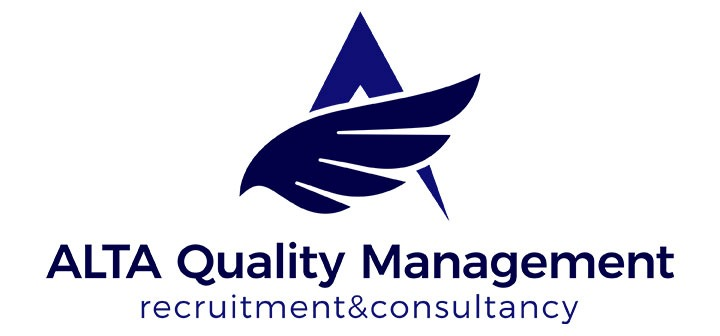
Symptoms Of ADHD In Adult Women
Add a review FollowOverview
-
Founded Date 12 maart 1944
-
Posted Jobs 0
-
Viewed 4
Company Description
9 Things Your Parents Taught You About Signs Of ADHD In Adult Women
Signs of ADHD in Adult Women: Understanding the Unique Challenges
Attention Deficit Disorder (ADHD) is typically connected with kids, particularly kids, resulting in a considerable underdiagnosis of the condition in adult women. Though the symptoms might manifest in a different way in women due to various social, biological, and psychological aspects, comprehending these signs is essential for precise diagnosis and reliable management. This post explores the signs of ADHD in adult women, the distinct obstacles they deal with, and offers helpful insights into seeking assistance.
Introduction of ADHD
ADHD is a neurodevelopmental disorder defined by symptoms of inattention, hyperactivity, and impulsivity. While frequently detected in childhood, ADHD can continue into the adult years, often without being recognized. It is important to note that the expression of ADHD symptoms can differ between males and females. Women typically display less hyperactive habits and more internalized symptoms, which may cause misconception or dismissal of their battles.
Signs of ADHD in Adult Women
Acknowledging ADHD in adult women can be complex. Below are some common signs and habits connected with the condition:
1. Inattention
- Difficulty sustaining attention in tasks or discussions.
- Often losing or misplacing products.
- Struggling to follow through with directions or total tasks.
- Becoming quickly distracted by extraneous stimuli.
- Forgetfulness in everyday activities, including appointments and commitments.
2. Hyperactivity and Impulsivity
While less common than in males, women with ADHD may exhibit signs of hyperactivity and impulsivity through:
- Restlessness or consistent fidgeting.
- An overwhelming requirement for movement or change.
- Spontaneous decision-making that causes regret.
- Tendency to interrupt others in discussions.
- Mental illness or state of mind swings.
3. Psychological Regulation
Women with ADHD often experience difficulties in emotional guideline, resulting in:
- Heightened level of sensitivity to criticism and rejection.
- Intense feelings of disappointment or anxiety.
- Problems in keeping steady relationships.
- Persistent feelings of overwhelm and self-doubt.
4. Organizational Challenges
ADHD can substantially affect organizational skills, which might manifest as:
- Trouble managing time effectively.
- Messy work areas or living locations.
- Persistent procrastination or trouble initiating tasks.
- Overcommitting and subsequent sensations of failure.
5. Relationship Difficulties
Women with ADHD may deal with social relationships due to:
- Misunderstandings caused by inattentiveness.
- Problem preserving focus throughout discussions.
- Obstacles with intimacy or psychological connections.
- A tendency to forget crucial dates or details.
Table: Comparison of ADHD Symptoms in Women vs. Men
| Symptom Category | Symptoms in Women | Symptoms in Men |
|---|---|---|
| Negligence | More internalized, offices impacts | Externalized behavior, sidetracked |
| Hyperactivity | Restlessness, fidgeting | High energy, disruptive habits |
| Impulsivity | Psychological impulsivity | Risk-taking, physical impulsivity |
| Emotional Regulation | State of mind swings, sensitivity | External anger concerns |
| Organizational Challenges | Disorganized, difficulty with time | Disorderly habits, forgetfulness |
Special Challenges Faced by Women with ADHD
Adult women with ADHD face particular social pressures that can complicate their experience. These consist of:
-
Societal Expectations: Women are typically anticipated to meet different roles, such as caregiver or professional, putting extra stress on those with ADHD. The pressure to keep an arranged and calm environment can exacerbate symptoms.
-
Misdiagnosis: Due to widespread stereotypes, women are typically misdiagnosed with conditions like stress and anxiety or anxiety instead of receiving a precise ADHD medical diagnosis, which can delay proper treatment.
-
Embarassment and Stigma: Many women feel pity about their symptoms, leading them to conceal their struggles. This suppression can result in an increased risk of stress and anxiety, depression, and other psychological health challenges.
-
Mental Load: The concept of the “psychological load,” or the cognitive burden of managing a home and family obligations, can be especially overwhelming for women with ADHD, leading to sensations of insufficiency.
Treatment Options
Acknowledging ADHD symptoms is the primary step towards getting assistance. Here are numerous treatment choices that might benefit women with ADHD:
- Cognitive Behavioral Therapy (CBT): Helps in establishing coping mechanisms and organizational techniques.
- Medication: Stimulants and non-stimulants can handle symptoms successfully.
- Training and Support Groups: These provide responsibility and shared experiences, cultivating a helpful community.
- Lifestyle Changes: Regular workout, sufficient sleep, and a healthy diet plan can favorably influence symptoms.
Frequently Asked Questions (FAQs)
1. Can ADHD manifest in the adult years without childhood symptoms?
Yes, some women might not recognize their symptoms until adulthood, frequently misplacing them as personality traits or stress-related problems.
2. How can I find a correct diagnosis for ADHD?
Consulting a mental health professional experienced in adult ADHD is important. They will generally carry out a detailed examination consisting of interviews and standardized assessments.
3. Exist specific coping strategies for women with ADHD?
Yes, strategies can consist of utilizing coordinators and tips, breaking tasks into smaller actions, and seeking support groups for shared experiences.
4. Is ADHD more common in guys than in women?
While generally diagnosed more in males, numerous researchers think that ADHD is equally prevalent in women but typically goes undetected.

5. How can family and pals support someone with ADHD?
Open communication, comprehending their challenges, and offering assistance with organizational tasks can be really handy.
Awareness of ADHD symptoms in adult women is vital for early medical diagnosis and effective intervention. By comprehending the unique expressions of ADHD and the challenges faced, doctor, household, and good friends can provide much better support, eventually causing improved lifestyle for women dealing with ADHD. Looking for expert aid is a crucial action toward management and empowerment in browsing daily life.

